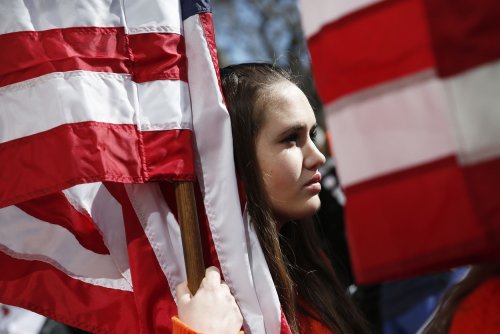ERBIL, Iraq, June 19 (UPI) -- Iraq's Kurds have consolidated their growing energy sector with Chevron Corp. securing a third exploration block in the semiautonomous northern region and France's Total buying a majority stake in another.
These moves intensify the Kurds' challenge to Iraqi Prime Minister Nouri al-Maliki's problem-plagued coalition in Baghdad, heightening tension between government forces and the Kurdish peshmerga fighters -- those who face death -- on Kurdistan's southern boundary.
The rift between the federal government and the Kurdistan Regional Government in Erbil, the Kurdish capital, keeps widening. The latest deals with Chevron and Total make the prospect of a settlement ever more distant.
The Iraqi Kurds, part of a stateless people across the region numbering some 25 million, have long dreamed of an independent homeland and Baghdad fears the KRG's oil wealth will result in a unilateral breakaway that could trigger the break-up of the federal state.
The deepening dispute over who will control the world's fifth largest oil reserves, which could eventually rival Saudi Arabia's, is part of a long-running blood feud between the Kurds and Baghdad that may yet erupt into open war.
Such concerns have been heightened by the turmoil sweeping the entire Middle East and have dismayed the United States.
Chevron said it has completed acquisition of the Qara Dagh block southeast of Erbil, covering an area of 330 square miles.
Total says it bought an 80 percent stake in the Baranan block, with the remaining 20 percent held by the KRG. Total already has a 35 percent stake the Harir and Safen exploration zones.
The move by major oil companies into Kurdistan reflects a general disenchantment with Iraq's oil sector by Western oil majors who a few years ago expected a postwar bonanza.
The break was led by Exxon Mobil in October 2011 when it acquired six exploration blocks in Kurdistan, turning its back on a major stake in the $50 billion West Qurna 1 megafield in southern Iraq.
Russia's Gazprom Neft has also acquired blocks in Kurdistan in recent months.
Baghdad considers all these deals involving the KRG to be illegal and refuses to pay the oil companies operating in Kurdistan their share of export revenues.
The Kurds say they're owed more than $3.5 billion by Baghdad, and stopped exporting through the state pipelines in December.
Exxon, and later Total, broke with Baghdad because of frustration at Baghdad's bureaucratic snarls and endless delays in vital infrastructure projects, a sentiment shared with most international oil companies, which have dealings with Baghdad.
Another reason was the federal government's niggardly production-sharing terms. The KRG offered far more lucrative terms and less restrictive operating conditions.
Other companies have found Iraq tough going. Norway's Statoil pulled out altogether in 2012.
Unlike Exxon and Total, which stand to lose their stakes in major southern fields controlled by Baghdad, Chevron does not have any commitments in southern or central Iraq.
The KRG sits on an estimated 45 billion barrels of oil, about one-third of Iraq's proven reserves currently pegged at 150 billion barrels.
As these oil majors have moved into Kurdistan, Turkey has stepped in with plans for a pipeline from the Kurdish zone northward to export terminals on the Mediterranean, bypassing Baghdad's network.
Turkey, which has no energy resources, seeks to establish itself as the pivotal east-west energy hub as part of its drive to become the major power in the region.
The Iraqi Kurds are currently producing around 200,000 barrels per day and exporting around 65,000 bpd by trucking it to world markets through Turkey.
That's slotted to hit 250,000 bpd by year-end and 2 million bpd by 2019.
Baghdad last week unveiled new production targets that were significantly reduced from the blueprint it unveiled several years ago, and deemed wildly ambitious by the global energy industry.
But equally significantly, the new projections do not include production from Kurdistan, suggesting Baghdad may now believe a resolution of the oil dispute with the KRG is not possible.
The increased output foreseen by the Oil Ministry -- 4.5 million bpd by the end of 2014, 9 million bpd by 2020 -- will come largely from new oil produced by the southern Iraqi megafields.
Many in the industry say even that will be stretch.














